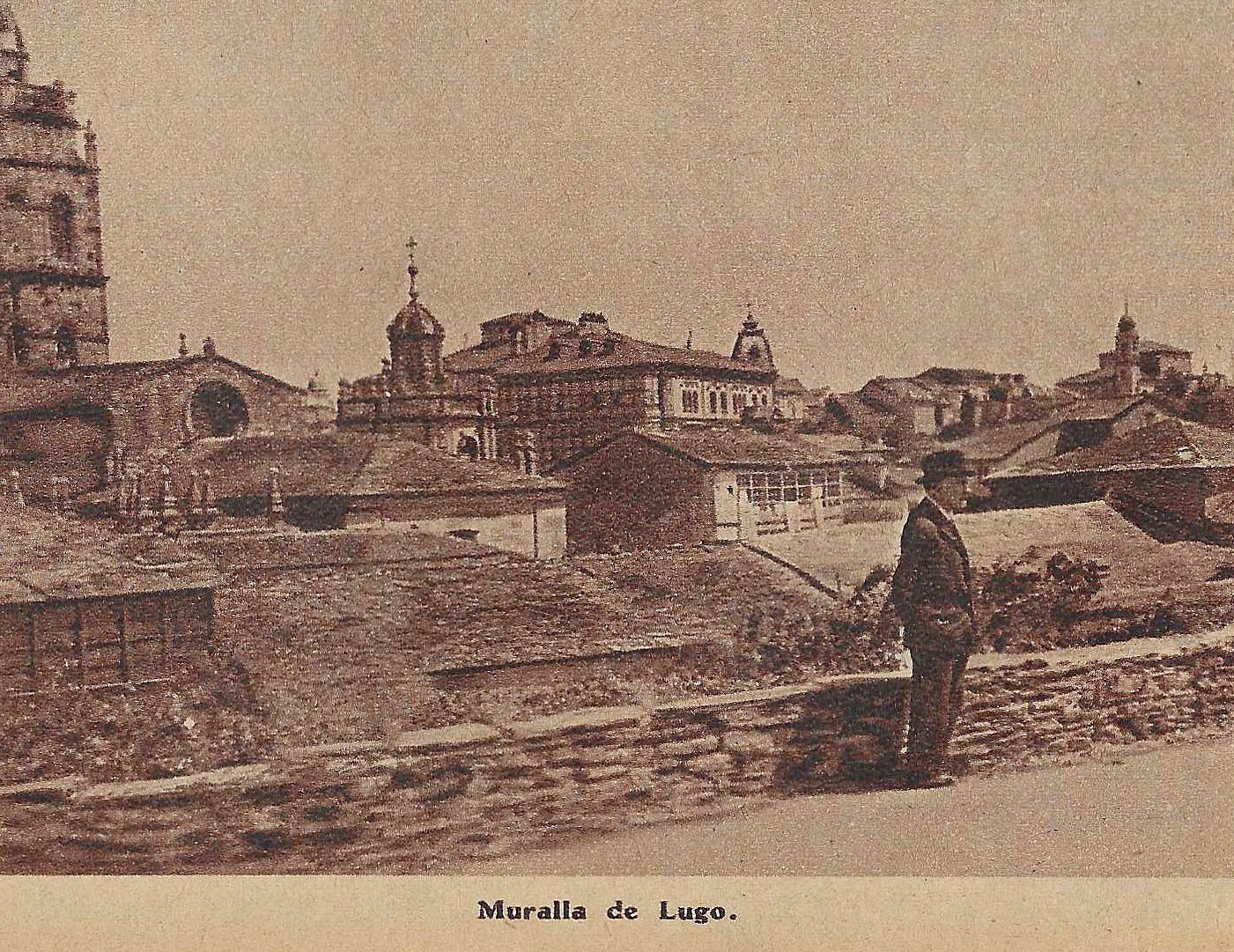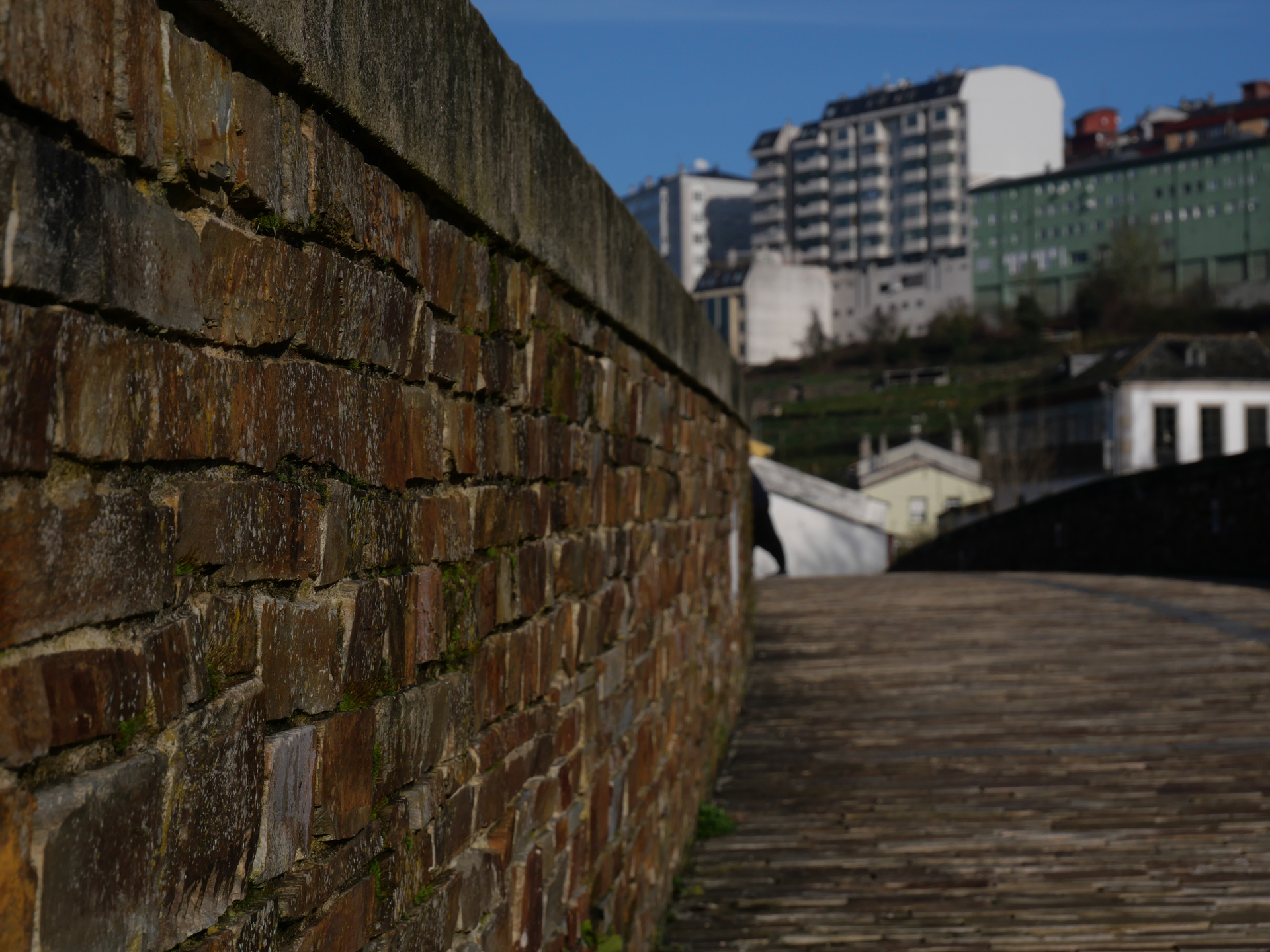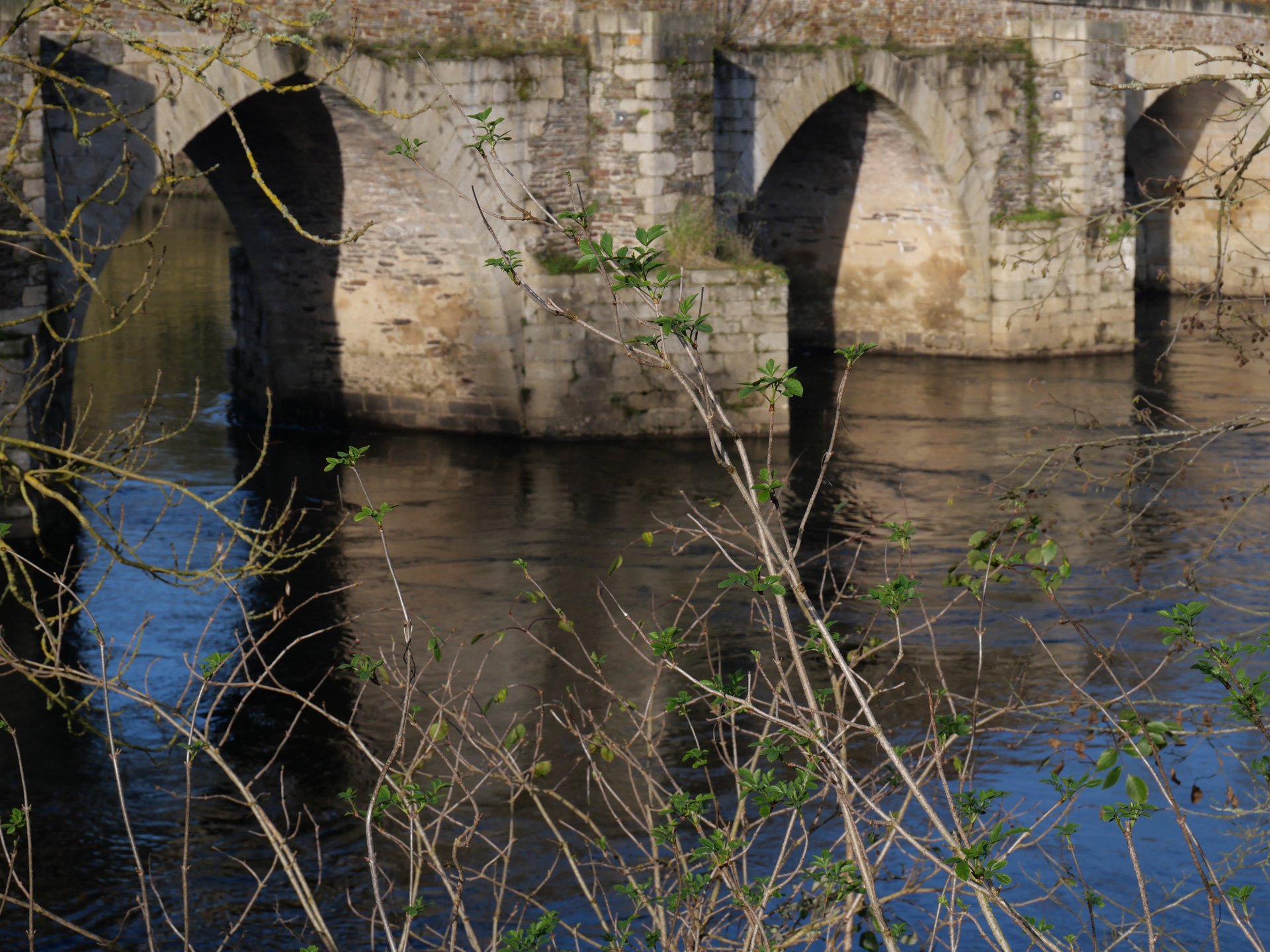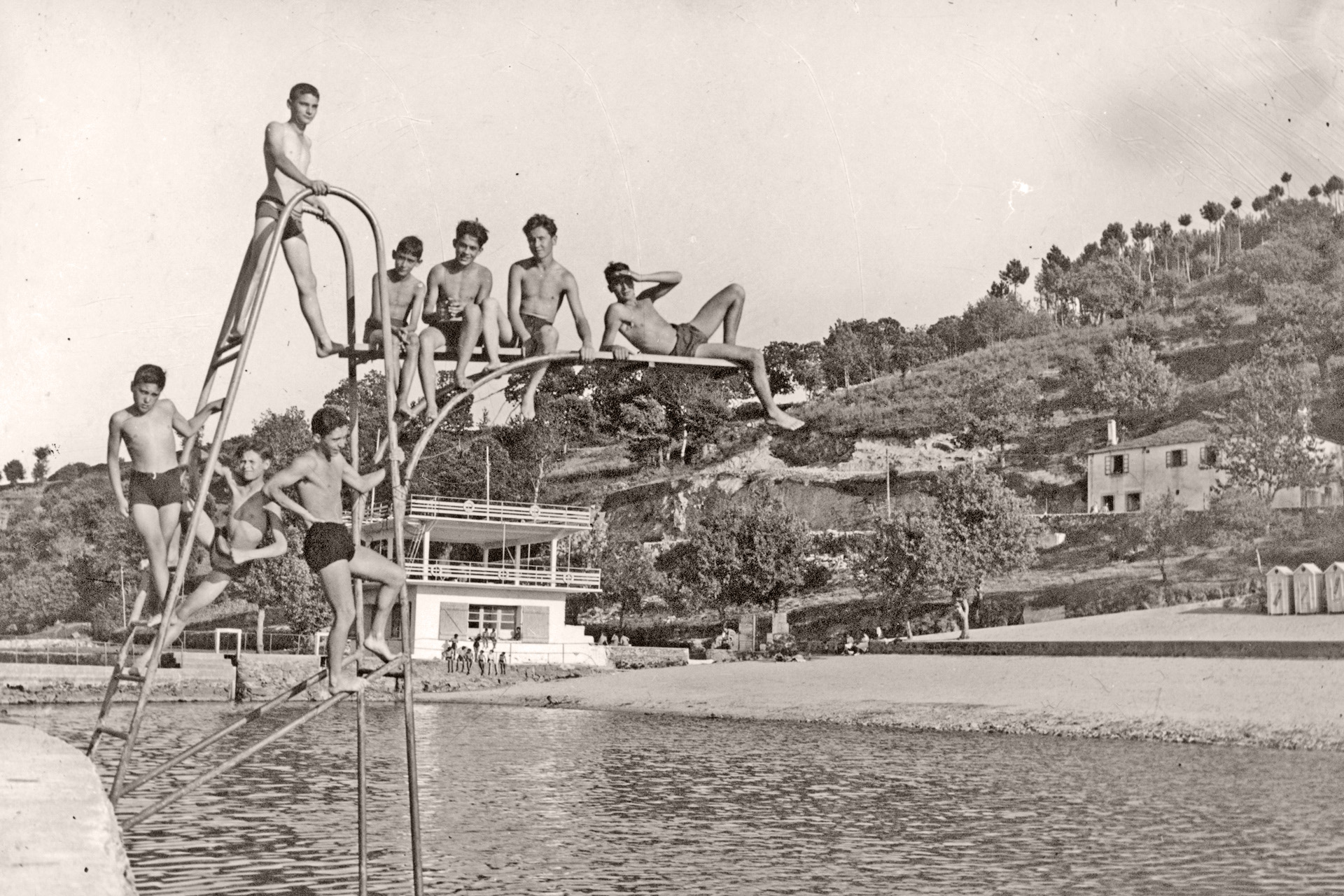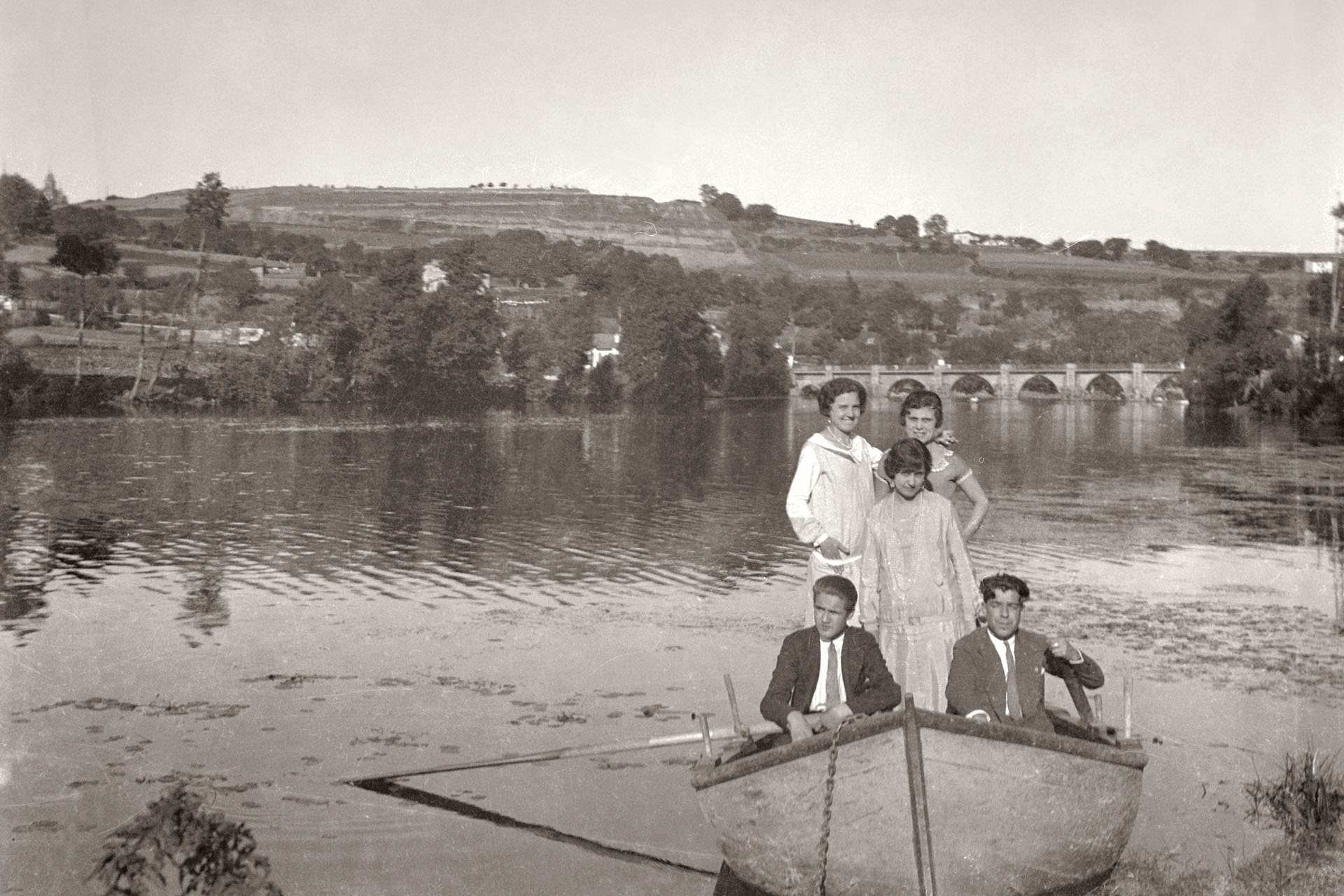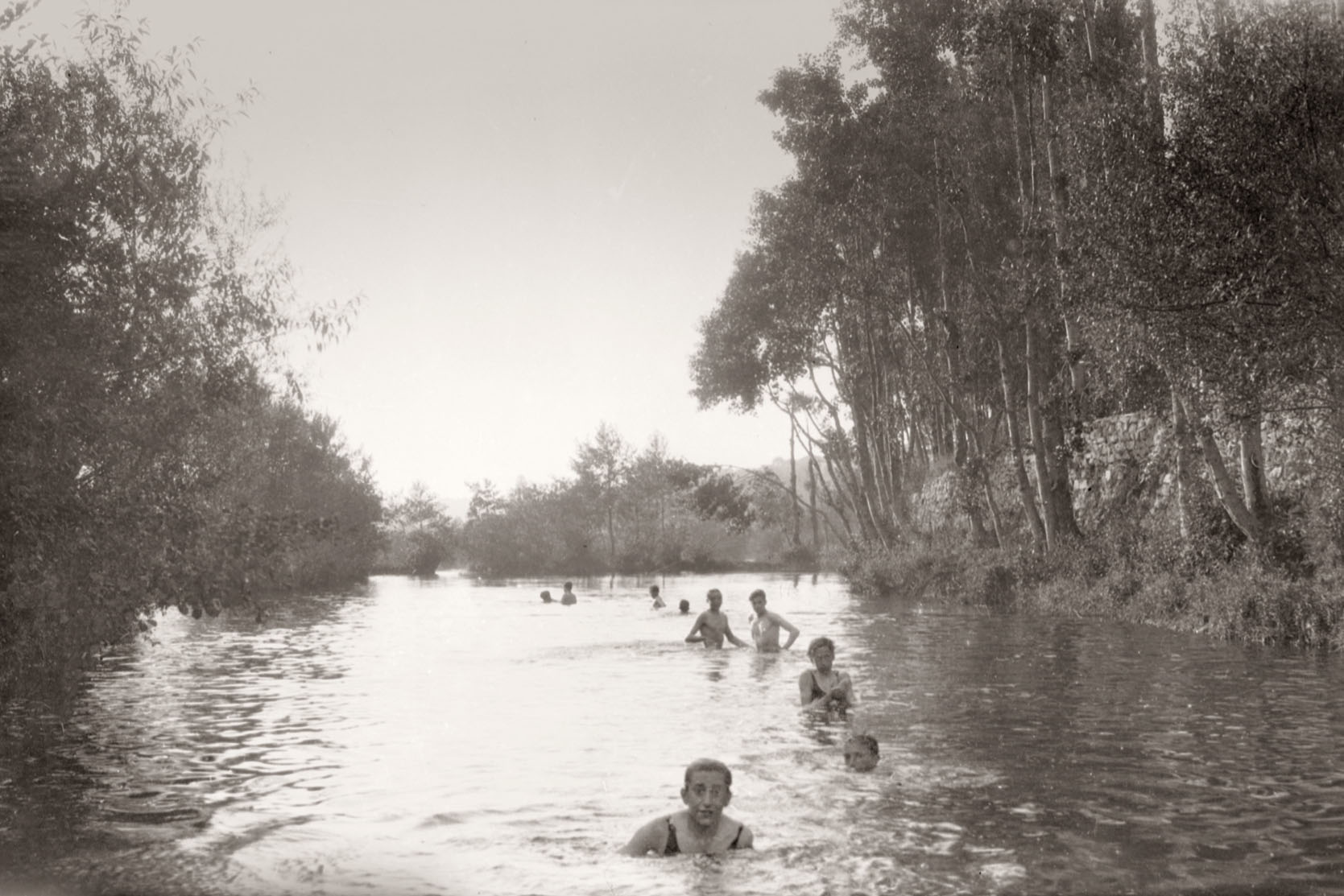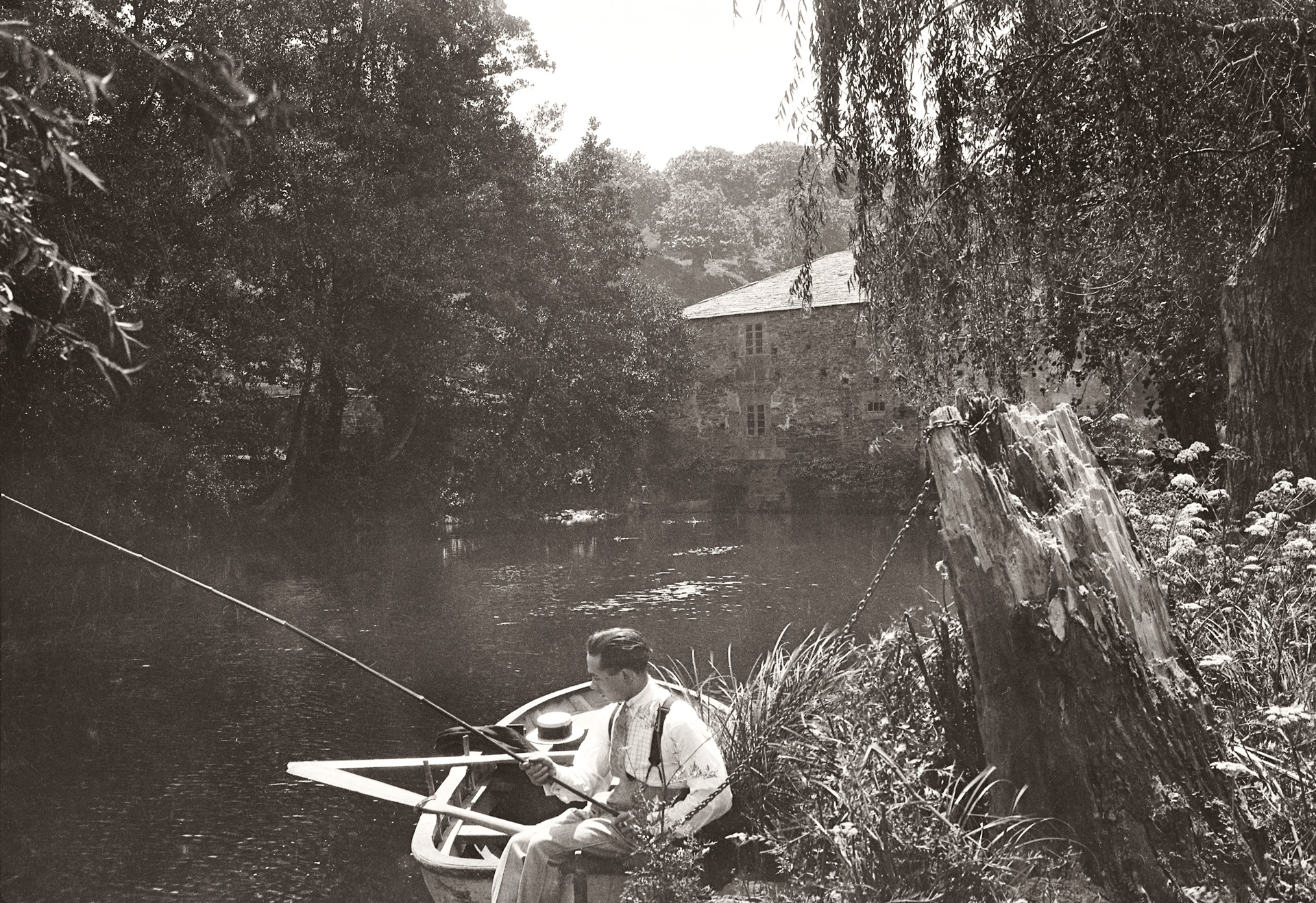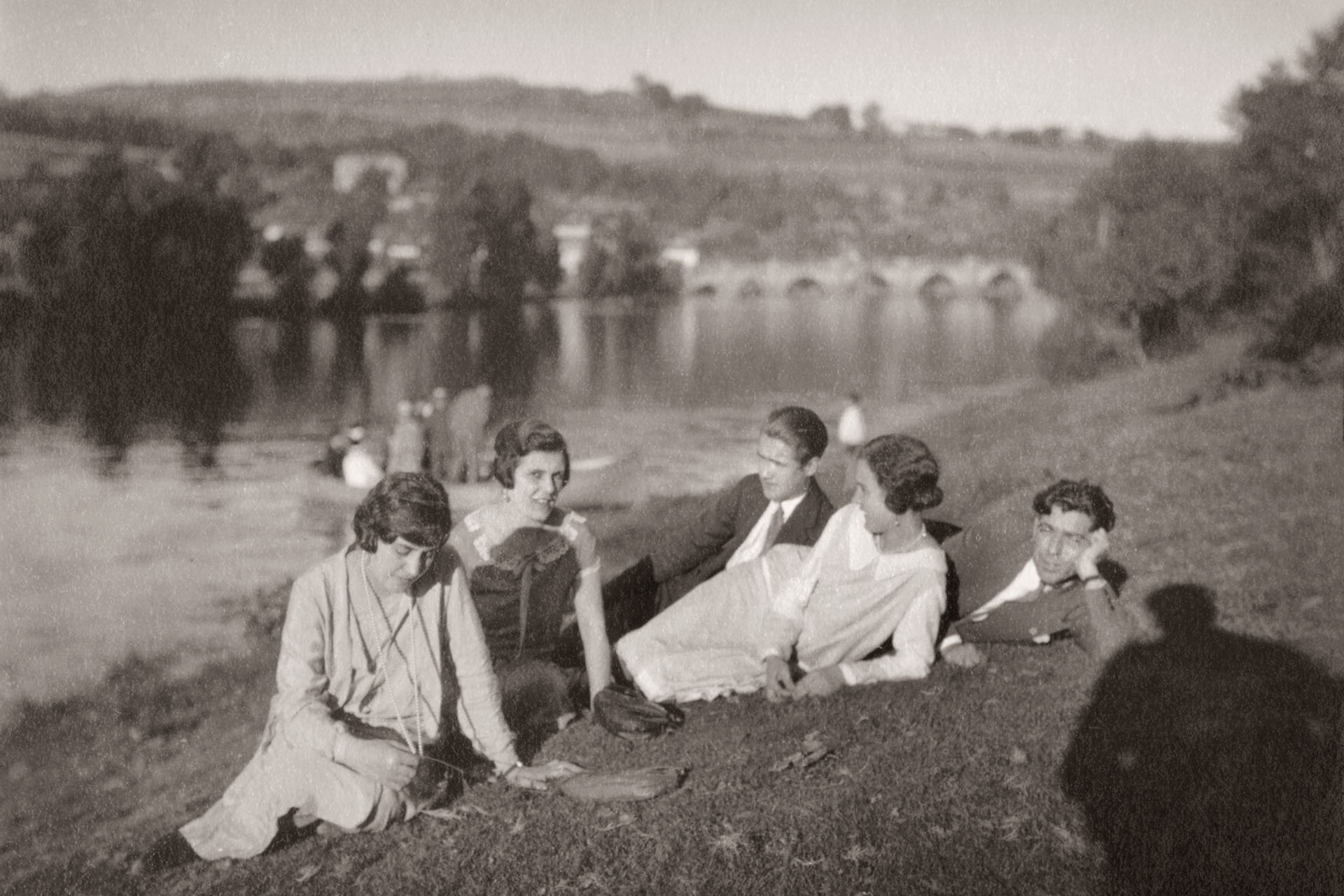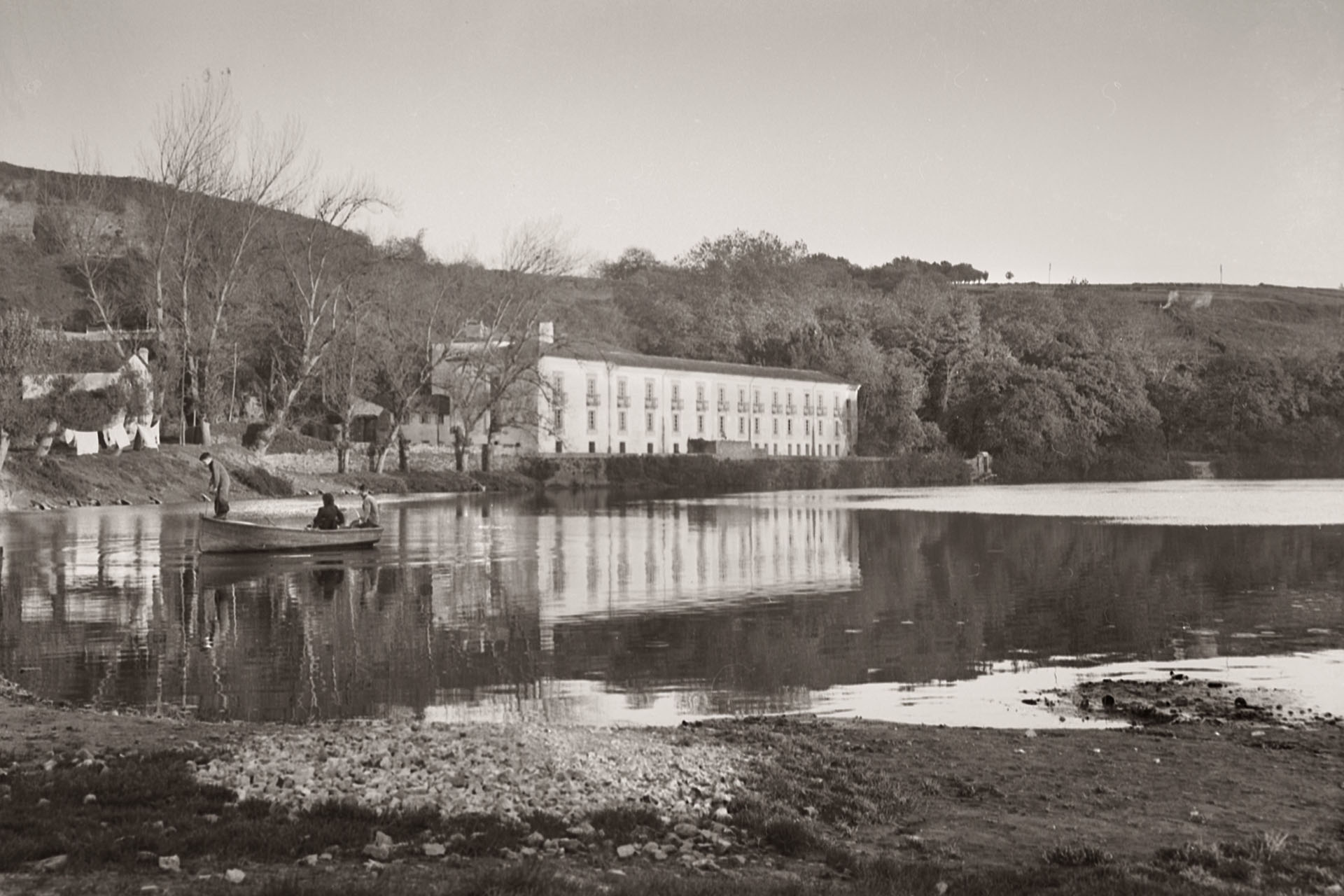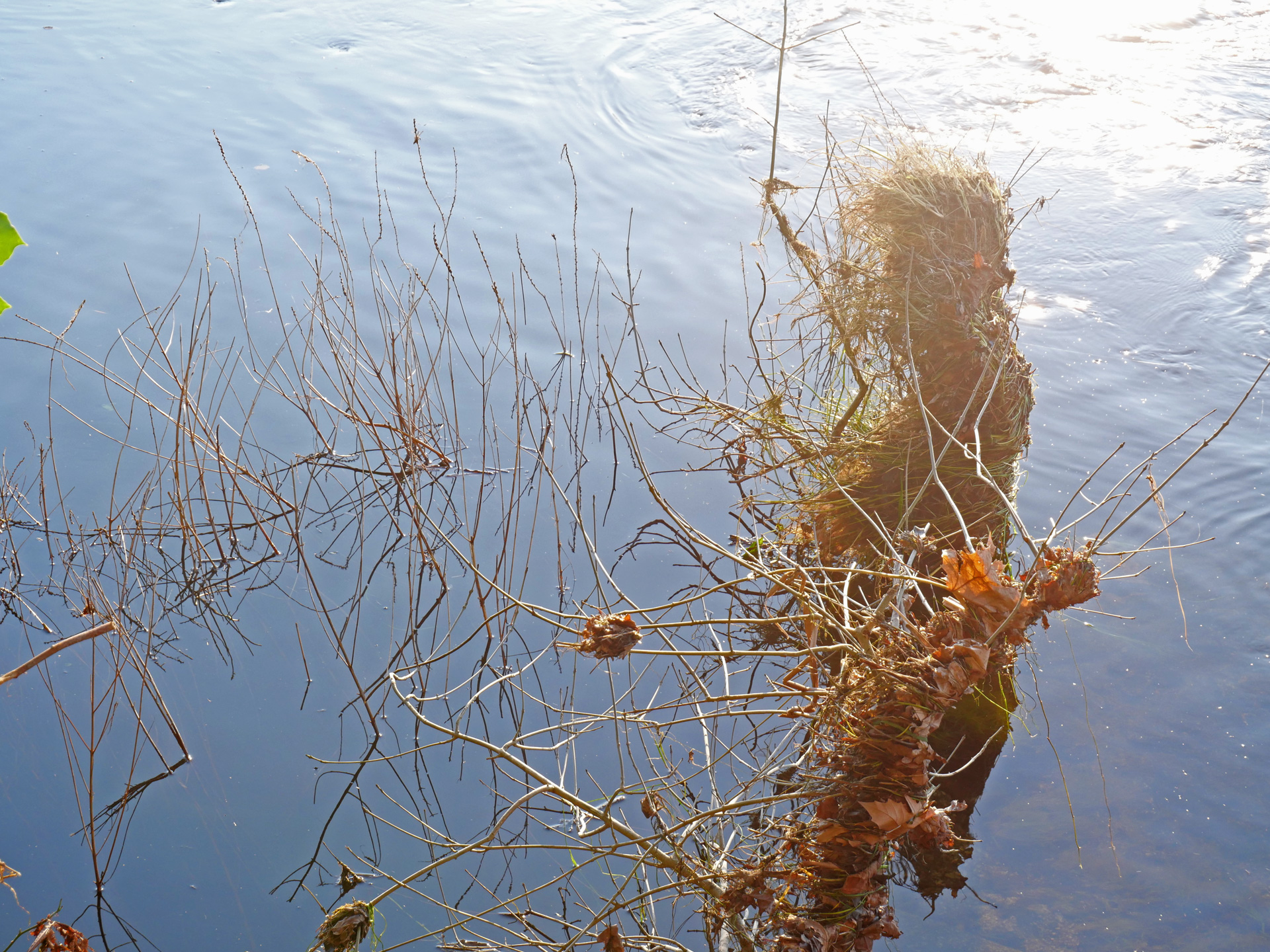
The Minho rolls along, watched by its inhabitants. Voices that take it in turn to speak, taking our memories with them. Up on high, the city walls tower over the horizon. Thousands of boulders remind us of the river’s presence. Pío Baroja reached the top and succumbed to its majestic power.
Lucus Augusti, the Roman city. Other travellers captured their impressions on paper. In summer the river’s waters here are filled with flowers. The swimmers’ voices can still be heard … The Roman bridge is the exit to the south.
El valle del Miño
Lugo, 1920-1936
AHPLu_LOTY 28086
«La muralla de Lugo, que dicen que es de origen romano, en algunas partes es soberbia. Desde sus baluartes se descubren hermosos panoramas. El río Miño es también soberbio, muy ancho, muy azul, con orillas frondosas.»
PÍO BAROJA
Sobre la ruta del General Gómez por los caminos de España. De Oviedo a Santiago de Galicia. Estampa (Madrid. 1928). 16/3/1935, página 39.
A video clip that submerges us in the waters of the Minho as it flows through the city of Lugo, taking us back a hundred years. It is summer and the swimmers are enjoying themselves by the spa, captured through the camera lens of Antonio Passaporte, Delgado Guisasola and Arribas.
Swimmers on a diving board
Lugo, 1943
Arquivo Municipal. Concello de Lugo.
Colección Delgado Guisasola
Antonio Fernández Márquez and family
Lugo, 1926
Arquivo Municipal. Concello de Lugo.
Colección Delgado Guisasola
Group of swimmers in the river Minho
Lugo, 1926
Arquivo Municipal. Concello de Lugo.
Colección Delgado Guisasola
Man fishing on a boat in the river Minho
Lugo, c. 1926
Arquivo Municipal. Concello de Lugo.
Colección Delgado Guisasola
Group of people on the bank of the river Minho
Lugo, c. 1926
Arquivo Municipal. Concello de Lugo.
Colección Delgado Guisasola
